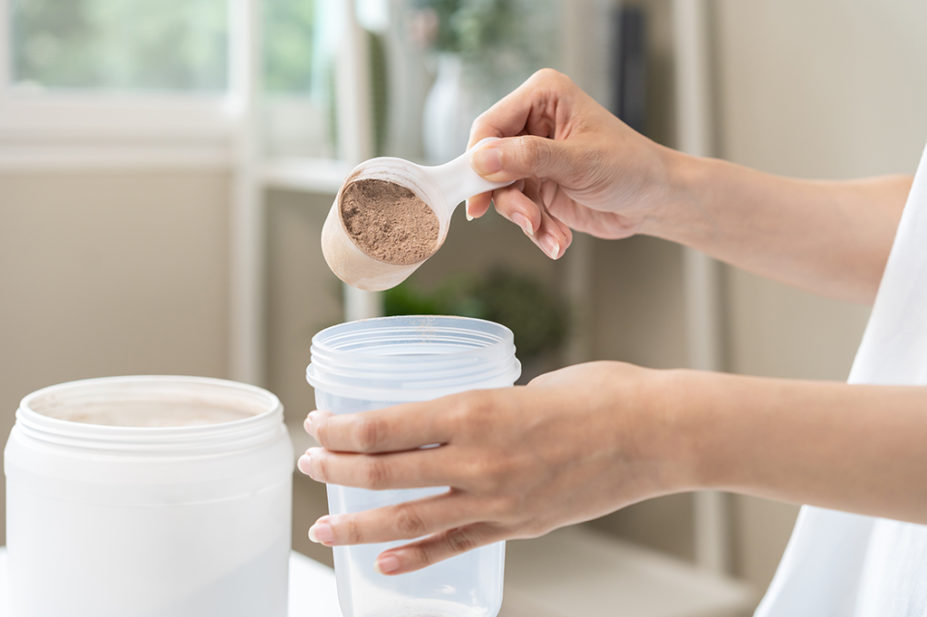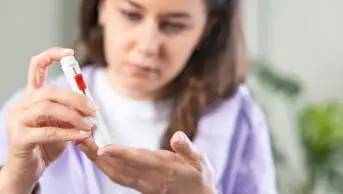
Shutterstock.com
NHS England has tendered for a contract worth £20m to commission up to five providers to offer a low-calorie diet programme to overweight patients with type 2 diabetes mellitus (T2DM) across England from June 2023.
The contract, published on 22 November 2022, follows a pilot phase of the programme, in which patients adhered to a diet of nutritionally complete ‘total diet replacement’ products, such as soups and shakes, with a total energy intake of between 800 and 900 kilocalories per day for 12 weeks.
This was followed by a period of food reintroduction and subsequent weight maintenance support, with a total duration of 12 months.
According to the tender’s service specification, the identification and referral of eligible patients to the service “is undertaken by general practice primary care services”.
“Eligible individuals will be aged 18 to 65 years, diagnosed with T2DM within the past six years and have a body mass index of 27kg/m2 or over in people from white ethnic groups, adjusted to 25kg/m2 or over in people from Black, Asian and other ethnic groups,” it says.
“Following the pilot phase of the programme, NHS England is making this intervention available to the eligible population across all of England,” it added, noting that between 10% and 20% of those living with T2DM in England would be eligible for the service.
Further contract documents state that the five providers that are commissioned to offer the service will be expected to provide up to 10,500 behavioural interventions in total each year, for at least the two-year duration of the contract, across the 42 integrated care systems (ICS) in England.
According to an NHS England press release in January 2022, more than 2,000 people with T2DM used the pilot programme, which was announced in November 2018 and is currently available in 21 areas of England, with participants losing an average of 13kg in three months.
Philip Newland-Jones, consultant pharmacist in diabetes and endocrinology at University Hospital Southampton, said the national rollout was “very good news”.
“The formal rollout of this is in line with the DiRECT study and that is one of the only studies that we’ve got at the moment that has really good evidence for (a) weight loss and (b) putting patients with diabetes into remission within the first few years of diagnosis,” he said.
The Diabetes Remission Clinical Trial (DiRECT), funded by Diabetes UK, studied 306 people with T2DM and found that 46% of patients on the low-calorie diet achieved remission of their T2DM after one year.
Among patients in the control group, who were provided current standard of diabetes care but without low-calorie weight management, only 4% were in remission a year later.
Newland-Jones added that the meal-replacement style of the service “is what makes it doable for the person, because they don’t need to necessarily think about it, it’s all provided, but also means it’s nutritionally complete as well and that’s also important”.
However, he added: “There are some patients who will do better on other types of diet. There will be some that, for 800–900 calories, they won’t be able to tolerate. So for that it’s important that we do have other options available.”
Hannah Syed, a specialist diabetes pharmacist at East Sussex Healthcare NHS Trust, told The Pharmaceutical Journal: “This is a welcome service that offers people living with T2DM the opportunity to engage in an evidence-based programme that allows sustainable change owing to the longer duration of support offered and personalised approach.
“In Sussex, we have been one of the pilot sites and have had significant interest in the service. The challenge we have found is space in primary care to enable the one-to-one service model delivery.”
Under the national programme, the service specification will allow providers to offer sessions ‘face to face’ or through a “digital delivery model”.


